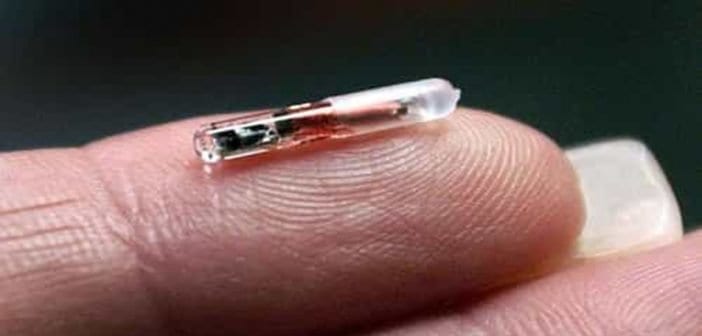
Researchers at UT Southwestern Medical Center and in Australia have shown that a drug currently in testing shows potential to cure malaria in a single dose and offers promise as a preventive treatment as well.
The new drug – DSM265 kills drug-resistant malaria parasites in the blood and liver by targeting their ability to replicate. Malaria is a highly infectious, mosquito-transmitted disease that kills nearly 600,000 people worldwide each year, mostly children under 5 years old living in sub-Saharan Africa. Nearly 200 million cases of malaria are reported annually, and about 3 billion people are at risk of malaria in 97 countries.
“DSM265 could be among the first single-dose cures for malaria, and would be used in partnership with another drug,” said lead author Dr. Margaret Phillips, Professor of Pharmacology at UT Southwestern. “The drug also could potentially be developed as a once-weekly preventive.”
The research team included UT Southwestern, the Monash Institute of Pharmaceutical Sciences in Australia, the University of Washington, and the not-for-profit Medicines for Malaria Venture (MMV). The study was published inScience Translational Medicine.
Researchers determined that the compound DSM265 kills the malaria parasite Plasmodium in both liver and blood stages of infection. Further, the compound was shown to be well tolerated and effective in preclinical models.
Currently, the frontline anti-malarial treatments are artemisinin-based combination therapies, or ACTs, which are credited with helping to reduce the malaria burden. However, malaria strains resistant to ACTs have recently been reported in Thailand, Cambodia, Vietnam, Myanmar, and Laos.
“The problem is we’re starting to see more drug resistance, and this is what’s taken out every anti-malarial drug we’ve had,” said Dr. Phillips, who holds the Beatrice and Miguel Elias Distinguished Chair in Biomedical Science, and the Carolyn R. Bacon Professorship in Medical Science and Education. “The parasite is very good at adapting and becoming resistant to drugs ? this is inevitable. What we can do is deliver new medicines with new modes of action and safeguard the longevity of the anti-malarial through use in combination as long as possible.”
In order to combat drug resistance, DSM265 likely would be partnered with another new drug and used as a one-dose combination therapy. Another option is to develop DSM265 as a once-weekly preventive for individuals traveling to malaria-endemic regions or for people living in areas where malaria infections are primarily seasonal and human immunity is low. Either scenario is still several years away, pending the outcome of current and future trials, said Dr. Phillips.
DSM265 targets the ability of the parasite to synthesize the nucleotide precursors required for synthesis of DNA and RNA, said Dr. Phillips.
The study concluded that DSM265 appeared to be safely tolerated in non-human tests and established optimal dosing levels and length of drug effectiveness in preclinical models to estimate dosing for humans, paving the way for clinical trials. The first clinical trial was a safety study in Australia, followed by an ongoing efficacy study in Peru to evaluate the ability to treat patients with malaria. Additional human studies are planned, including one to test the drug as a preventive medicine. UT Southwestern is assisting in an advisory capacity in these studies and is providing support with biomarker assays.
Read more: Drug Shows Promise as Single-Dose Cure and as Preventive Treatment for Malaria
The Latest on: Malaria
[google_news title=”” keyword=”malaria” num_posts=”10″ blurb_length=”0″ show_thumb=”left”]
via Google News
The Latest on: Malaria
- Tinubu's Aid, Who Engage S/e Communities With Measures To Eradicate Malariaon May 1, 2024 at 3:04 pm
The Senior special Assistant to the president on Community engagement, south east, Mrs Chioma Nweze in partnership with World Health Organization, and Chestrad ...
- World Malaria Day: LAWMA Boss Makes Case For Clean Environmenton May 1, 2024 at 2:11 pm
The Managing Director/CEO of the Lagos Waste Management Authority (LAWMA), Dr. Muyiwa Gbadegesin, has underscored the importance of maintaining a clean environment, to combat the spread of malaria. He ...
- World Malaria Day: ClearlineHMO, Greenlife donate malaria aid to communityon May 1, 2024 at 3:06 am
Speaking at the event held at the Oba Palace, General Manager, Sales and Marketing, Clearline HMO, Olaoye Olubukola, said the outreach to commemorate World Malaria Day was aimed at helping the ...
- New monoclonal antibody vaccine slashes malaria risk in childrenon April 30, 2024 at 8:19 pm
A recent study demonstrates that the monoclonal antibody-based vaccine L9LS is safe for children aged 6 to 10 and significantly reduces the risk of malaria infection and clinical symptoms by 70% and ...
- Sarasota County prepares for mosquito season after last year’s malaria outbreakon April 30, 2024 at 3:29 pm
As we inch closer to some of the rainiest months of the year, residents can expect to see more mosquitoes out and about.
- Let's recommit to strategies for malaria-free, equitable world by 2030on April 30, 2024 at 6:17 am
Malaria remains a pressing public health challenge especially in sub-Saharan Africa. The 2021 World Malaria Report estimated that there were 241 million cases and about 631,000 deaths from the disease ...
- Malaria: The plight of residents of low-income neighbourhoodson April 30, 2024 at 2:25 am
Ponds of dirty water on the streets of Makoko, an informal neighborhood in Lagos, and a lack of decent living conditions provide ideal breeding conditions for malaria-spreading mosquitoes. Globally, ...
- SA on track to achieve malaria elimination status by 2028on April 25, 2024 at 9:10 pm
South Africa is today joining the global community to observe World Malaria Day to recognise global efforts to control malaria to reduce the burden of the disease and avoid preventable deaths.
- Single Monoclonal Antibody Injection Protected Kids Against Malariaon April 25, 2024 at 5:00 pm
Opens in a new tab or window A single subcutaneous injection of an investigational monoclonal antibody was safe and effective in preventing malaria in children in Mali, according to results of the ...
- Climate change is bringing malaria to new areas. In Africa, it never lefton April 25, 2024 at 9:23 am
When cases of locally transmitted malaria were found in the U.S last year, it was a reminder that climate change is reviving the threat of some diseases.
via Bing News










